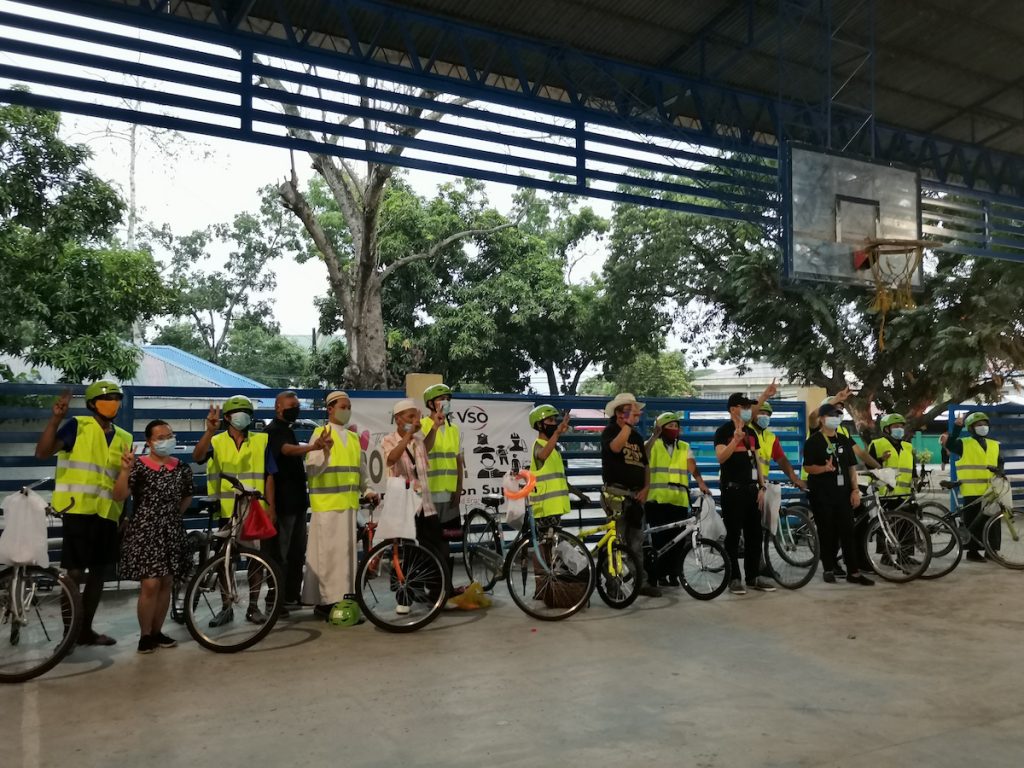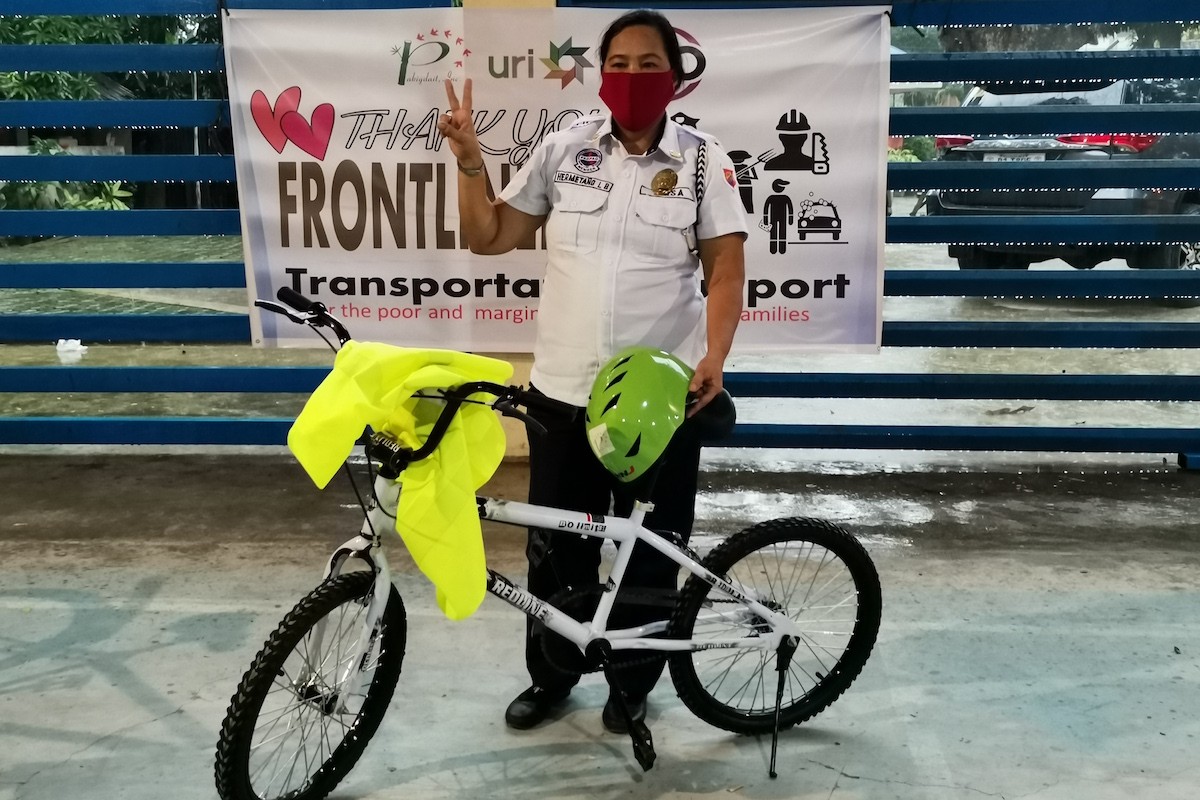Security guard Lorina Hermitaño, who lives in the village of Maria Cristina in Iligan City in Mindanao, would take a jeepney to work before the pandemic.
Hermitaño, 46, would spend nine pesos travelling to work and another nine pesos to get back home every day.
She was spending about 400 pesos, or less than US$10, a month for transportation.
When she would be in hurry to report to work, she would take a motorcycle taxi and pay 50 pesos, or about US$1, for the trip.
When authorities imposed strict quarantine measures during the pandemic and suspended public transportation, Hermitaño walked for three hours to work and another three hours to go back home.
She was excited when strict quarantines were lifted this month only to learn that she has to deal with higher transportation fares.
The nine-peso one-way fare has increased to 22 pesos, making her spend about a thousand pesos, or about US$20 a month.
“The [Php900] that I will be spending for my transportation is already equivalent to a half sack of rice,” she said. “I am a solo parent and I don’t have a husband to help me,” added Hermitaño.
Then her employer lent her a bicycle. “I was so happy. It was a big help,” she said.
She later learned that she was chosen as a beneficiary of a program launched by Pakigdait Inc., a faith-based civil society group in partnership with VSO-Philippines, and the United Religious Initiative.
The program distributed bicycles to beneficiaries who are considered “poor and marginalized non-medical front-liners.”
Other beneficiaries included a gardener, a street vendor, a carpenter, a Muslim religious teacher, a sawmill operator, and a volunteer peace worker.
Abelardo Moya, director of Pakigdait said, the beneficiaries are considered “front-liners” and “heroes” because despite the pandemic they continued working to provide services to the public.
Moya noted that these men and women even walked several kilometers every day to work.
For Hermitaño, a 30- to 40-minute jeepney ride from her house to work would take between 45 minutes and one hour.

With a bicycle, she has to leave her house about 5:30 in the morning to get to her work at 7:00 a.m.
“This is better than spending a lot for transportation,” she said.
Another beneficiary, Rodelio Valiente, 36, used to live with a cousin in the village of Kiwalan, about seven kilometers away from where he works as a gardener.
Like Hermitaṅo, Valiente, who has two small children, had to walk two to three hours to get to work when public transportation ceased in April.
“My employer has three dogs that I have to feed. She has a garden that I have to take care of,” said Valiente.
Valiente’s employer also lent him a bicycle during the lockdown, but when it broke and he did not have the money to fix it, he was back to walking.
His employer offered a farm house five kilometers away for Valiente to be nearer his work.
“I still have to walk, but the situation is better because my employer has space where I tend a small garden,” he said. “I planted vegetables. We have free food,” he added.
When he learned that he would receive a bicycle from the program, Valiente was overjoyed and thanked those behind the “blessing.”
Moya said the organization learned about Valiente when they had their workshop at the restaurant where the latter works.
“We asked the management if they have a waiter to recommend as beneficiary and he was referred to us,” said Moya.
He said Pakigdait believes that the jobs of people like Hermitaṅo and Valiente are “underrated” even as these are important tasks during the pandemic.
Moya said his organization’s “transportation support program” is the answer to the government’s prohibition of “back-riding” on motorcycles.
“When the government prohibited [back-riding], they should have offered an alternative, like giving bikes to the poor and marginalized sectors who continue to work despite the pandemic,” said Moya.







